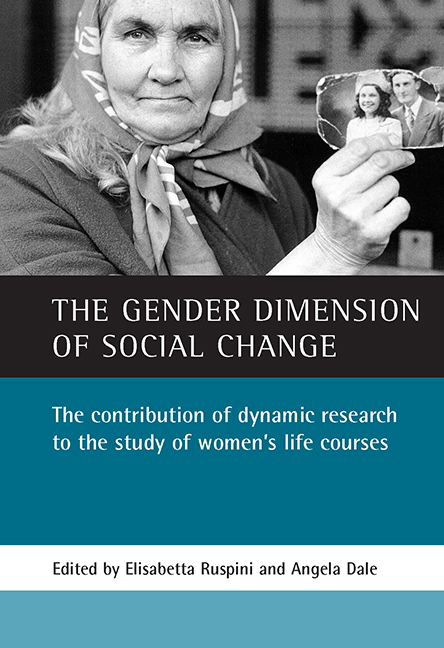 The Gender Dimension of Social Change
The Gender Dimension of Social Change four - The role of education on postponement of maternity in Britain, Germany, the Netherlands and Sweden
Published online by Cambridge University Press: 20 January 2022
Summary
Introduction
In most European countries, age of the mother at first birth has reached an all-time high. The number of women who never give birth to a child, the ultimate childlessness rate, has increased to the highest level since the Second World War. In a series of articles we have argued that economic rationality works in favour of postponement of maternity, while presumably biological rationality calls for a halt to this trend, and perhaps a reversal.
Postponement of maternity has not yet received the attention it deserves from economists. In Population and family economics, Hotz, Klerman and Willis (1997) devote only one-and-a-half pages to the timing of births, while there is more demographic than economic research on postponement of maternity (see, for example, Bosveld, 1996 and Beets, 1997, 1998). Bongaarts (1999) argues that there is no reason to worry about decreasing fertility rates, because they are caused by an increase in the age at maternity. He points out that if women are 30 instead of 25 when they start families, they can still reach replacement rates (that is, about two children per woman). We argue that there is reason to worry. If the mean age is around 30 it means that many women will be approaching 40 before they have ‘organised’ their lives to start a family. Many women may therefore be approaching their biological limit when they wish to get pregnant. This results in more demands on medical assistance (such as in vitro fertilisation) and it carries more risks for mother and child (see Wetzels, 2001, ch 7) and more ultimate (including some involuntary) childlessness. This chapter analyses these effects of education on postponement of maternity. We distinguish between level of education completed and time of leaving full-time education as determinants in explaining the timing of first birth.
We use household panel data from four countries: for Britain we use the British Household Panel Survey (BHPS) (see Taylor, 1999); for Germany, the German Socio-Economic Panel (GSOEP) (see Wagner et al, 1991; Haisken De New and Frick, 1998); for the Netherlands, the Organisatie voor Strategisch Arbeidsmarkt-onderzoek (OSA) (see Allaart et al, 1987); and for Sweden, the Hushållens ekonomiska levnadsförhållanden (HUS) (see Flood et al, 1997; Klevmarken and Olovsson, 1993).
- Type
- Chapter
- Information
- The Gender Dimension of Social ChangeThe Contribution of Dynamic Research to the Study of Women's Life Courses, pp. 55 - 80Publisher: Bristol University PressPrint publication year: 2002
- 1
- Cited by


